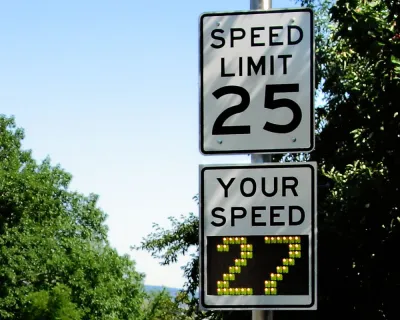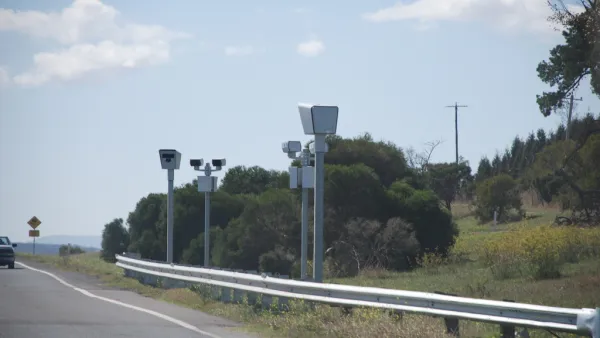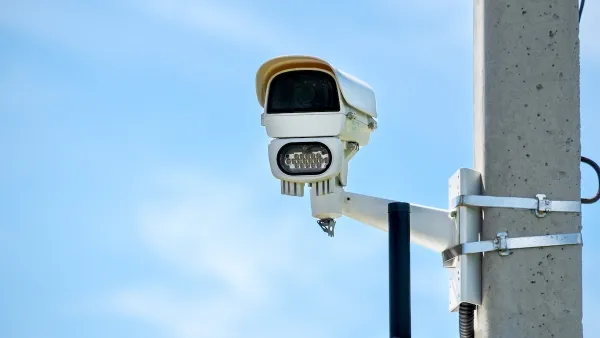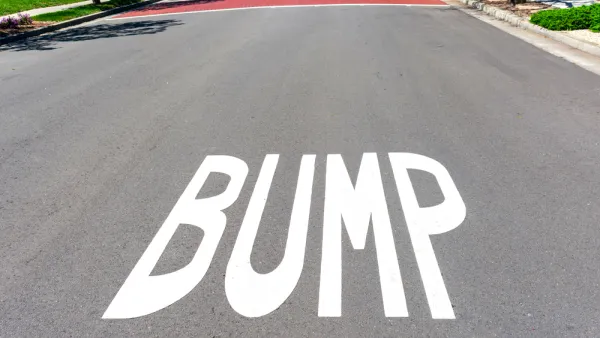The state of Virginia's new traffic safety program will focus on speeding as fatal factor in automobile collisions and could eventually provide a model for similar programs around the country.

"To reduce the danger of driving, Virginia state officials are now planning a new comprehensive road safety campaign to slow down drivers," reports Wyatt Gordon. "However, controversies around equitable enforcement and the political unpopularity of speeding cameras means [sic] that no one can say at the moment what the final program will look like when details are debuted this fall."
"The coming anti-speeding pilot program represents a multi-state, multi-organization effort in cooperation with Maryland, the Governors Highway Safety Association, the Insurance Institute for Highway Safety and the National Road Safety Foundation," adds Gordon.
Russ Rader, senior vice president for communications at the IIHS, is quoted in the article discussing the neglected factor of speed in addressing traffic safety. The new program is intended as a response to calls from advocates to address the elephant in the traffic safety room.
According to Gordon, the program will focus on three "Es"—enforcement, education and engineering—and will "build on the success of the Click It or Ticket campaign that coincided with a national 20 percent increase in seat belt usage over a 16-year period."
The program will also be a chance to innovate in its approach to equity—with the new attention paid to disproportionate impacts of traffic enforcement for BIPOC Americans during the pandemic. According to Gordon's explanation automated speed enforcement might be proposed as a solution to the tendency of police to target BIPOC with higher and more violent levels of enforcement. Automated speed enforcement is usually controversial and is also outright banned by many state and local governments. The case for automated technology also isn't as universally accepted as a tool to reduce discrimination as one might assume.
John Saunders, DMV’s director of highway safety, is quoted in the article saying the program could respond to controversies surrounding automated traffic safety technology by placing new priority on "safety systems."
"We need to do everything we can to protect the driver and other vulnerable road users because folks are always going to make mistakes," says Saunders in the article.
FULL STORY: Virginia aims to slow down drivers. Will it work?

National Parks Layoffs Will Cause Communities to Lose Billions
Thousands of essential park workers were laid off this week, just before the busy spring break season.

Retro-silient?: America’s First “Eco-burb,” The Woodlands Turns 50
A master-planned community north of Houston offers lessons on green infrastructure and resilient design, but falls short of its founder’s lofty affordability and walkability goals.

Delivering for America Plan Will Downgrade Mail Service in at Least 49.5 Percent of Zip Codes
Republican and Democrat lawmakers criticize the plan for its disproportionate negative impact on rural communities.

Test News Post 1
This is a summary

Test News Headline 46
Test for the image on the front page.

Balancing Bombs and Butterflies: How the National Guard Protects a Rare Species
The National Guard at Fort Indiantown Gap uses GIS technology and land management strategies to balance military training with conservation efforts, ensuring the survival of the rare eastern regal fritillary butterfly.
Urban Design for Planners 1: Software Tools
This six-course series explores essential urban design concepts using open source software and equips planners with the tools they need to participate fully in the urban design process.
Planning for Universal Design
Learn the tools for implementing Universal Design in planning regulations.
EMC Planning Group, Inc.
Planetizen
Planetizen
Mpact (formerly Rail~Volution)
Great Falls Development Authority, Inc.
HUDs Office of Policy Development and Research
NYU Wagner Graduate School of Public Service





























